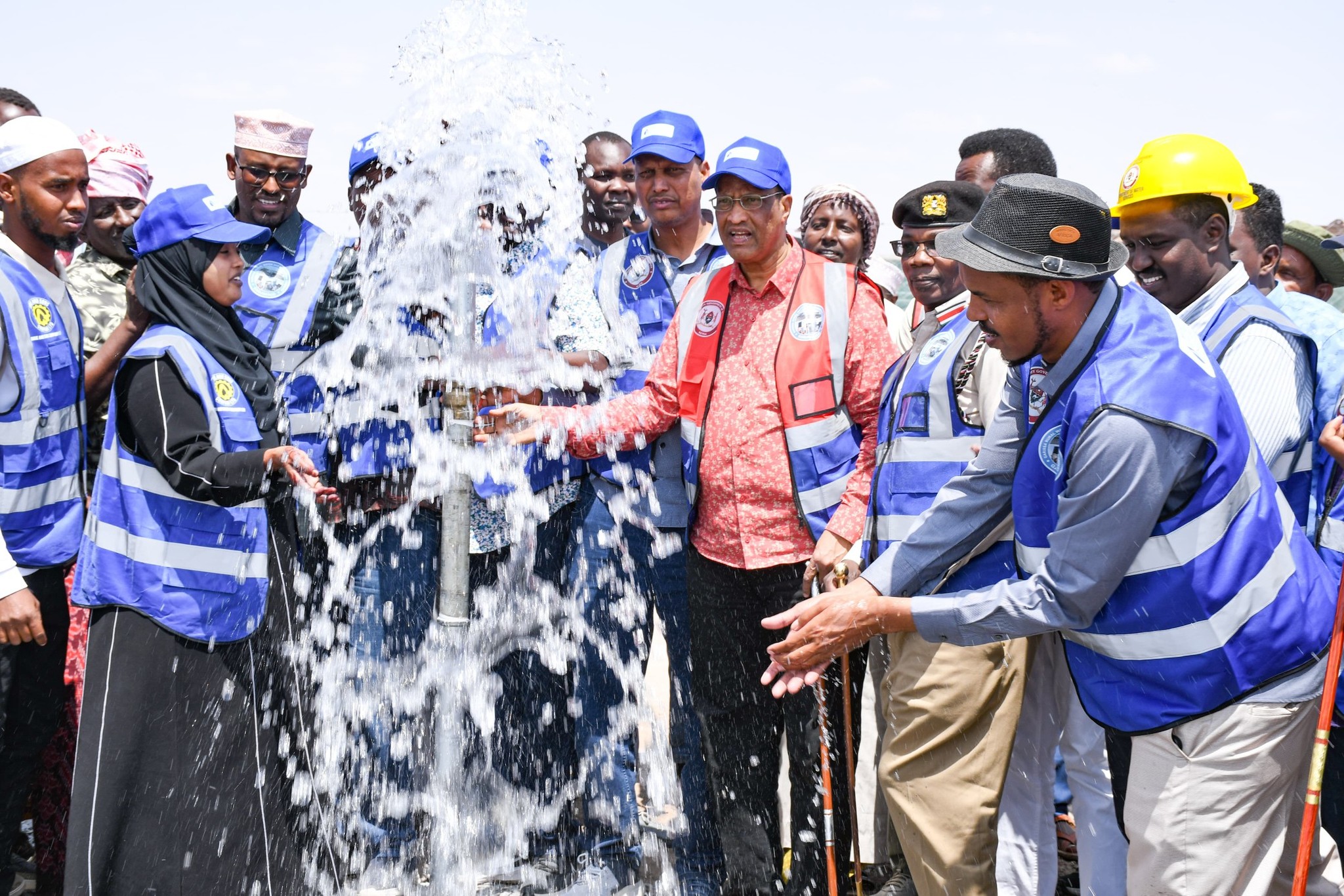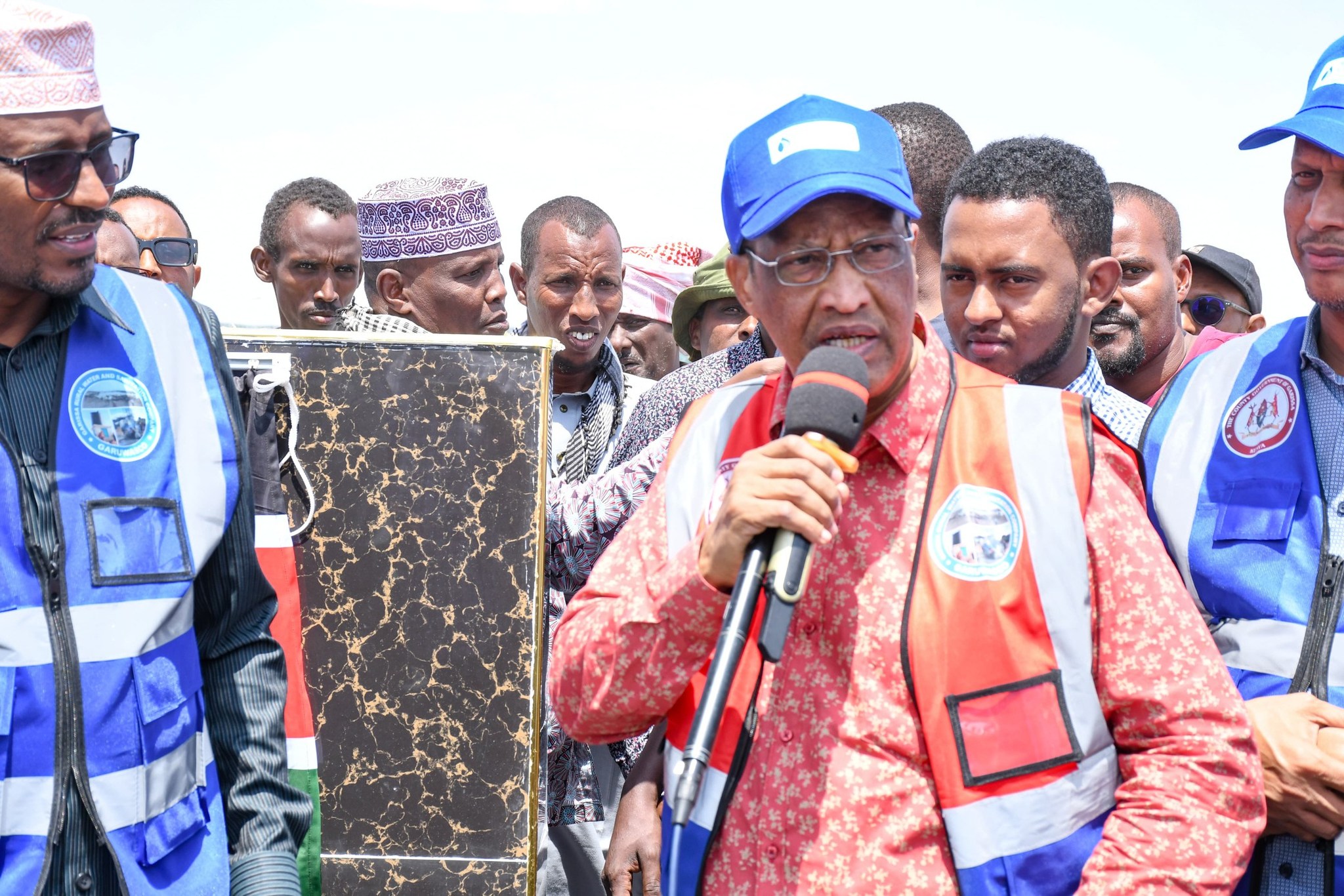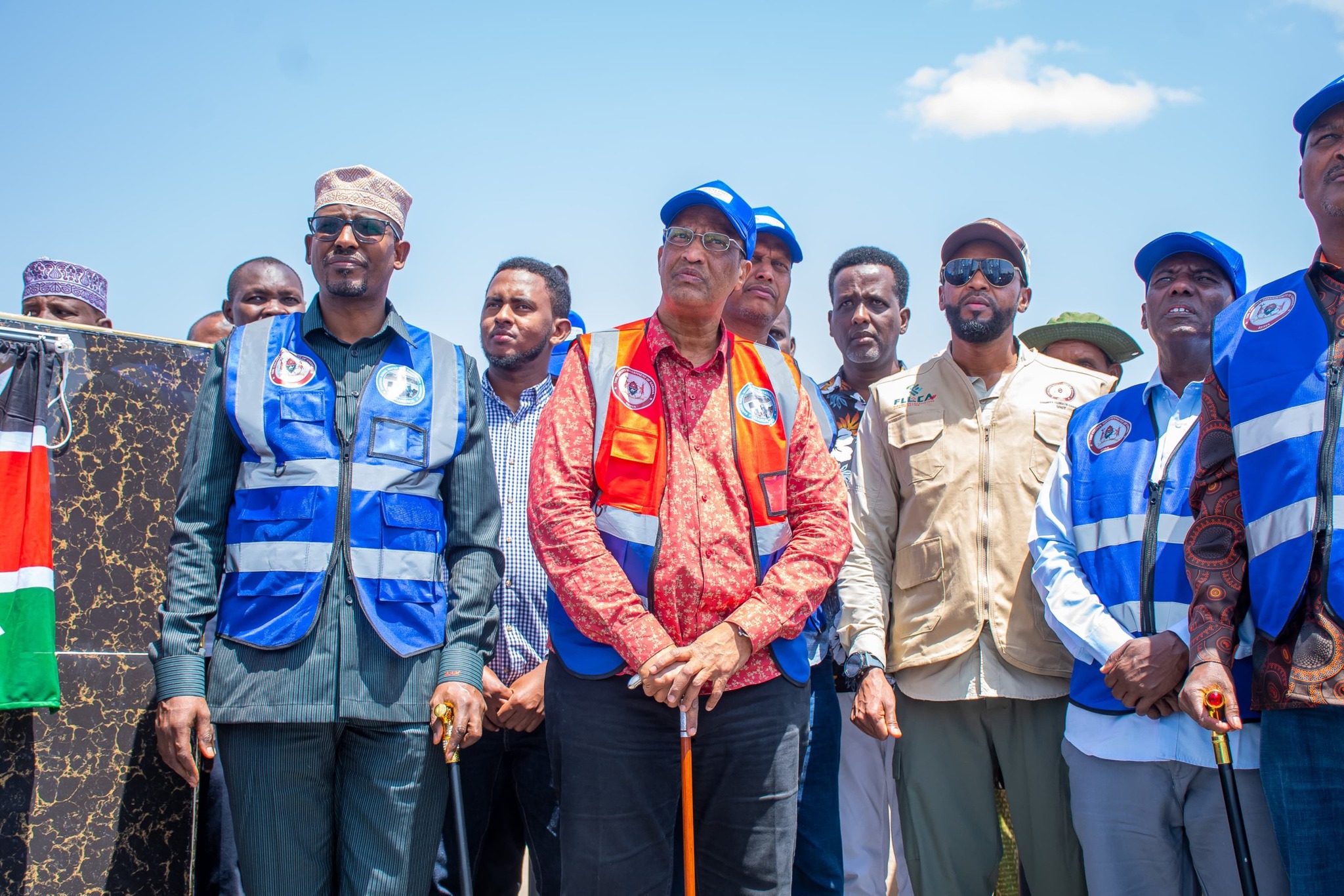
Garissa county hospital goes digital, automates services
CEO Salah says move will improve patient flow, accountability and data for planning
Over 2,000 households set to benefit dfrom the project, including 75 in Maalim and 45 in Afweine
In Summary
 Garissa governor Nathif Jama officially launching the Baraki-Maalim
water project. He was flanked by fellow leaders./STEPHEN ASTARIKO
Garissa governor Nathif Jama officially launching the Baraki-Maalim
water project. He was flanked by fellow leaders./STEPHEN ASTARIKO Garissa
Governor Nathif Jama speaking after officially launching the Baraki-Maalim
water project./STEPHEN ASTARIKO
Garissa
Governor Nathif Jama speaking after officially launching the Baraki-Maalim
water project./STEPHEN ASTARIKO Garissa Governor Nathif Jama, his Wajir counterpart Ahmed
Abdullahi and other leaders during the launch of the Baraki/Maalimin water
project./STEPHEN ASTARIKO
Garissa Governor Nathif Jama, his Wajir counterpart Ahmed
Abdullahi and other leaders during the launch of the Baraki/Maalimin water
project./STEPHEN ASTARIKOResidents of Baraki and Maalim in Garissa County's Lagdera sub-county are finally enjoying access to clean water after the commissioning of a major water project in the area.
For over a century, communities in the region have struggled without a reliable source, depending instead on shallow wells and water trucking services from the county government.
The newly launched project, led by the Garissa County Government and supported by the Financing Locally Led Climate Action (FLOCA) programme, is a transformative development that promises to change lives. It includes a 48-kilometre pipeline from Baraki and a 50-cubic-meter water pan.
Speaking at the commissioning ceremony, Governor Nathif Jama described the initiative as a “lifeline” and a symbol of resilience, determination, and collaboration.
“Today I am an extremely happy man as I stand before you to commission this water project. Water is life, it is everything that sustains life itself. To witness clean and quality water freely flowing is a dream come true,” he said.
The project, which began in October 2016 and was completed in June 2025, includes three boreholes—two of which are operational, producing 40,000 litres per hour.
It also features two booster stations, each equipped with a 225,000-litre masonry tank at Guyobombi and Languyatta, along with multiple public water points.
More than 2,000 households are set to benefit directly from the project, including 75 in Maalim and 45 in Afweine. Institutions now connected to the system include two primary schools, two dispensaries, a technical and vocational training centre (TVET), and two mosques.
Governor Jama said his administration’s focus on water infrastructure was aimed at easing the burden residents have borne for decades and improving public health.
“For a long time, our people—mostly pastoralists—have walked for long distances in search of this precious commodity. That ends today,” he said, thanking residents for their patience and support.
Jama also announced plans to solarize the boreholes to reduce operational costs and carbon emissions, with backing from CARE Kenya and Islamic Relief.
He said this will open the door to carbon credit opportunities and future climate finance.
“The successful implementation of this project shows what is possible when governments, communities, and partners come together. Let us now take full ownership of the system—protect it, govern it well, and make sure it serves generations to come,” he added.
Wajir Governor Ahmed Abdullahi, who attended the event, said the infrastructure would improve public health, support livelihoods, and increase resilience to climate shocks.
“This initiative strengthens public health, supports local livelihoods, and fosters community-driven development,” he said.
For local residents, the moment was deeply emotional.
Mohamed Hussein, a 70-year-old resident of Baraki, called it “a new dawn.”
“To say that we have suffered for decades for lack of water is an understatement,” he said. “Today, I cannot hide my joy seeing water flow from taps.”
Halima Noor also shared her relief, recalling how generations of women and girls fetched water from distant and unreliable sources.
“Our mothers and daughters, some as young as three, would wake up early to fetch water. Many times, they’d come back empty-handed. It’s a painful story. But now that is history. It is a new dawn for us,” she said.
The launch was attended by senior national and county leaders, including Principal Secretary for ASAL and Regional Development Harsama Kello, Garissa Senator Abdul Haji, PS Maritime Affairs Eng. Adan Abdi Millah, Lagdera MP Abdikadir Mohamed Hussein, and Garissa Township MP Dekow Mohamed.

CEO Salah says move will improve patient flow, accountability and data for planning